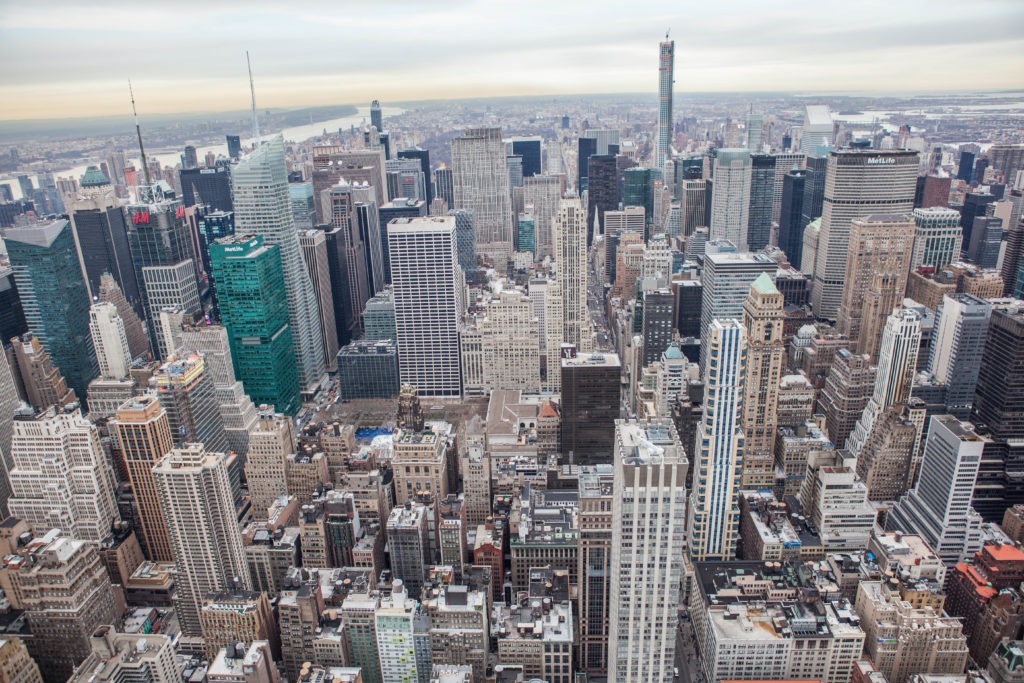
This image was originally posted to Flickr by Anthony Quintano at http://flickr.com/photos/22882274@N04/16335452951.
Emergency program could kick-start New York opportunities
By Lauren Rudick
Last November, while top industry professionals gathered for the Marijuana Business Conference in Las Vegas, word spread that New York had passed an emergency medical marijuana access program to give critically ill patients immediate access to cannabis, before the previously-enacted Compassionate Care Act becomes operational. As of this writing, no legal medical marijuana has been sold in New York and licensees have been struggling to meet the regulatory January deadline.
Under the emergency program, out-of-state licensees were invited to participate, causing questions to fly. From where will “emergency medicine” be obtained? How will distribution be accelerated? Was an avenue created to import cannabis into New York? Only one thing was clear: New business opportunities were on their way to populous New York.
To whom the emergency licenses will be issued and the process by which patients will obtain emergency medication should be resolved by the time this article is published, since the interim nature of the program will expire. Attention should be paid to the method by which cannabis is distributed, as the urgency that precipitated the program’s enactment apparently did not create a mechanism to import marijuana into New York.
Further, the U.S. Department of Justice concluded that such a mechanism would violate federal law, an interpretation hotly challenged by the Drug Policy Alliance and patient advocates. With any luck, the applicants who won New York’s five coveted licenses won’t be discouraged by out-of-state competition. And hopefully, the 38 applicants who did not win licenses will not litigate the process by which emergency licenses were granted. Such litigation would delay the administration of medical marijuana — a scenario the emergency program was designed to avoid. Similar circumstances delayed the implementation of Massachusetts’ medical marijuana program for two years.
That out-of-state licensees were invited to do business in New York begs an important industry question: What are your expansion opportunities in New York and the rest of the Northeast? The key to cannabis business expansion depends upon entrepreneurs’ ability to target states ripe for opportunity, while adapting to the evolving regulatory landscape.
The Northeast is seeing more industry investors, many of whom have learned from Colorado and California to see beyond regulatory red tape. Kevin Murphy, of High Street Capital Partners, a fund with multiple cannabis holdings in the Northeast, cautions that New England specifically is a highly regulated region for medical cannabis. But, Murphy says, that same “strict state government oversight” has built substantial credibility for the use of cannabis as treatment.
To date, there are more than 55,000 registered patients in the Northeast, including New York. Voters in Maine and Massachusetts will consider legalization in 2016. Also in 2016, Vermont and Rhode Island will likely implement adult-use recreational programs, while Connecticut, New Hampshire and New Jersey lawmakers will openly consider it. That said, the biggest prize is New York, the fourth most populous state in the nation. The vast majority of residents support medical marijuana; physicians are being urged by the Department of Health to recommend marijuana to patients who qualify; and lawmakers openly acknowledge that the Compassionate Care Act bears no resemblance to the patient-friendly program the people originally sought. Further liberalization seems inevitable.
If you have been deterred by regulation, keep an eye on it — regulations change quickly. And as shown in New York, changes may foster expansion opportunities. In New York, the emergency access program gave the Department of Health discretion to waive or modify certain stringent requirements of the Compassionate Care Act. While the CCA called for the issuance of only five licenses to produce and distribute medical marijuana in New York, the emergency access program would allow an unspecified number of new licenses.
Under the CCA, cannabis must be New York-grown, in compliance with stringent time frames and requirements; the emergency program may allow out-of-state applicants to be licensed, and preference may be afforded to those positioned to supply medical marijuana more expeditiously than the state’s current licensees.
With new licenses in New York, additional dispensaries are expected. When approving the emergency program, Governor Andrew Cuomo directed the health department to conduct an assessment of population and medical data to ensure the 20 planned dispensaries would “satisfy patient need.” With only four dispensaries slated to open in New York City’s five boroughs — none in Brooklyn or Staten Island — and the remaining 16 scattered across the state, patient satisfaction is unlikely. The state is also expected to expand qualifying conditions to include PTSD, Alzheimer’s, muscular dystrophy, dystonia and rheumatoid arthritis, which would stretch the developing cannabis resources thin. Until recently, industry experts have not regarded New York as “investible.” But with changes coming, the Northeast is ready to bloom.
Lauren Rudick represents investors and startup organizations in all aspects of business and intellectual property law, specializing in cannabis, media and technology. Her law firm, Hiller, PC, is a white-shoe boutique firm with a track record for success, handling sophisticated legal matters including business and corporate law.



